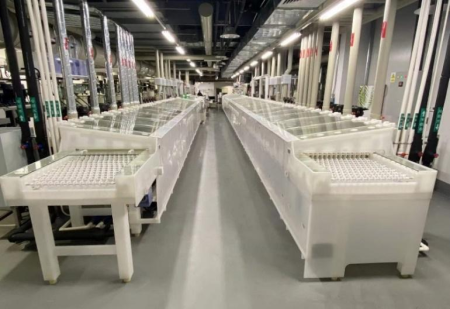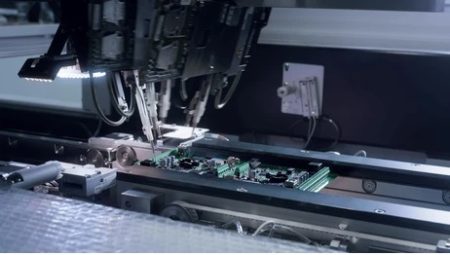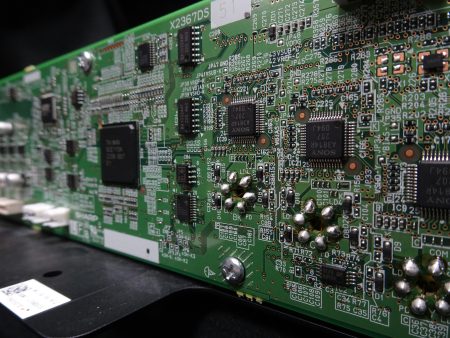- +86-755-23012705
- Building 3, Jinfeng Industrial Park, Fuyong Street, Baoan District, Shenzhen ,China
- [email protected]
In the 20 days leading up to Christmas, PCB (Printed Circuit Board) manufacturing factories in China typically face a series of specific challenges, particularly regarding demand surges, supply chain pressures, and production scheduling. Here are the main difficulties they might encounter, along with potential solutions:
Order Backlog: As Christmas approaches, many customers in the consumer electronics sector (such as smartphone, home appliance, and smart device manufacturers) rush to complete orders for the holiday market. This leads to a significant increase in PCB orders, particularly for high-quality, high-precision boards.
Tight Delivery Deadlines: Customers typically demand fast deliveries, particularly for high-priority orders. The delivery times become extremely tight, putting significant pressure on production schedules.
Optimized Production Planning: Communicate with customers early to create an efficient production schedule. Prioritize orders based on urgency and importance to ensure on-time delivery for key orders.
Increased Production and Overtime: To meet the surge in demand, factories can increase production capacity by adding overtime hours, extra shifts, or temporary workers to meet deadlines.
Flexible Order Adjustment and Communication: Proactively discuss delivery timelines with customers. If some orders cannot be delivered on time, negotiate solutions such as partial deliveries or adjusted deadlines.

Raw Material Shortages: With increased demand in the global consumer electronics market, PCB manufacturers may face shortages in essential materials like copper foil, substrates, and chemicals, or experience price hikes.
Logistics Delays: Due to the global spike in shipping demand around Christmas, delays in material deliveries, especially for international shipments, can disrupt production schedules.
Advance Procurement and Inventory Management: Purchase raw materials ahead of time based on order forecasts to ensure sufficient inventory, particularly for critical materials. Maintain close communication with suppliers to avoid shortages.
Diversified Supplier Base: Avoid reliance on a single supplier by sourcing materials from multiple suppliers. This way, if one supplier encounters issues, the factory can turn to others without affecting production.
Optimized Logistics Channels: Work with reliable logistics providers and explore faster shipping methods, such as air freight, to mitigate shipping delays. Having contingency plans in place will allow the factory to adjust production schedules if delays occur.
Employee Absences: As Christmas approaches, some workers may take vacation time, leading to a shortage of manpower, especially during the peak production period.
Skill Gaps: Some high-precision, specialized PCB production tasks require skilled workers. Temporary workers or overtime labor may lack the necessary experience, which can impact efficiency and quality.
Employee Training: Provide training to existing staff in advance to improve skills, ensuring that temporary workers or new hires can quickly adapt and maintain production efficiency.
Flexible Workforce Allocation: Use temporary workers, shift assignments, or outsource some tasks to alleviate labor shortages. Ensuring adequate staffing, particularly for peak periods, can prevent production delays.
Incentive Programs: Offer bonuses, overtime pay, or other incentives to motivate employees to work during the busy holiday season and to reduce the risk of absenteeism.

Risk of Equipment Failures: With the increased production pressure, the likelihood of equipment malfunctions rises. Equipment failures, especially for high-precision machines, can halt production and delay deliveries.
Capacity Bottlenecks: If a factory’s production lines are already at maximum capacity, it may struggle to handle the surge in orders, resulting in delays.
Preventive Maintenance and Inspections: Conduct regular equipment maintenance and checks before the peak season to ensure that machinery is operating at optimal levels. Have spare parts readily available for key equipment to minimize downtime in case of failure.
Capacity Expansion: If the current production capacity is insufficient, consider adding more production lines or upgrading existing equipment to handle the increased demand. Outsourcing part of the production to other partners can also help ease the capacity strain.
Quality Issues: In the rush to meet deadlines, some production lines may compromise on quality control, leading to defects or substandard products. PCB quality issues can result in costly rework and customer complaints.
Technical Complexity: Some orders involve high-complexity or specialty PCBs, which require advanced technical capabilities. Manufacturing challenges may arise when dealing with these technically demanding orders.
Stringent Quality Control: Even under tight production schedules, ensure that quality control procedures are strictly followed. Implement multiple layers of inspection to ensure that every batch meets customer requirements.
Technical Support and R&D Investment: For complex or specialized PCBs, work closely with the R&D team to address technical challenges ahead of time. Investing in process optimization and technical innovation can improve production stability and product quality.
Raw Material Price Increases: The surge in demand around Christmas can lead to price hikes in raw materials, particularly for copper, resins, and other essential components, resulting in increased production costs.
Higher Labor Costs: The need for overtime and temporary workers raises labor costs, putting additional financial pressure on the factory.
Price Negotiations with Customers: If material costs rise, factories can negotiate with customers for price adjustments to offset the increased production costs. Transparent communication with customers can help manage expectations and minimize profit losses.
Optimizing Production Efficiency: Enhance operational efficiency by streamlining production processes, reducing waste, and minimizing downtime. This can help lower per-unit costs and reduce the financial impact of rising raw material and labor costs.

In the 20 days leading up to Christmas, PCB manufacturing factories in China face challenges related to order surges, supply chain disruptions, labor shortages, equipment issues, quality control, and cost fluctuations. The key to overcoming these challenges lies in proactive planning and communication, optimizing production schedules, maintaining strong supplier relationships, ensuring quality control, and efficiently managing labor and resources. By implementing these strategies, factories can meet the holiday demand, maintain customer satisfaction, and ensure smooth operations during this high-pressure period.
Discover a World of Possibilities with XPCB Limited
At XPCB Limited, we’re here to help you explore new horizons. Our advanced PCB manufacturing, rapid prototyping, and turnkey PCBA solutions make it easy for you to turn your ideas into reality. Trust us to deliver excellence and reliability every step of the way. Join us and experience the power of innovation with XPCB Limited by your side.






XPCB Limited is a premium PCB & PCBA manufacturer based in China.
We specialize in multilayer flexible circuits, rigid-flex PCB, HDI PCB, and Rogers PCB.
Quick-turn PCB prototyping is our specialty. Demanding project is our advantage.
Tel : +86-136-3163-3671
Fax : +86-755-2301 2705
Email : [email protected]
© 2024 - XPCB Limited All Right Reserve
